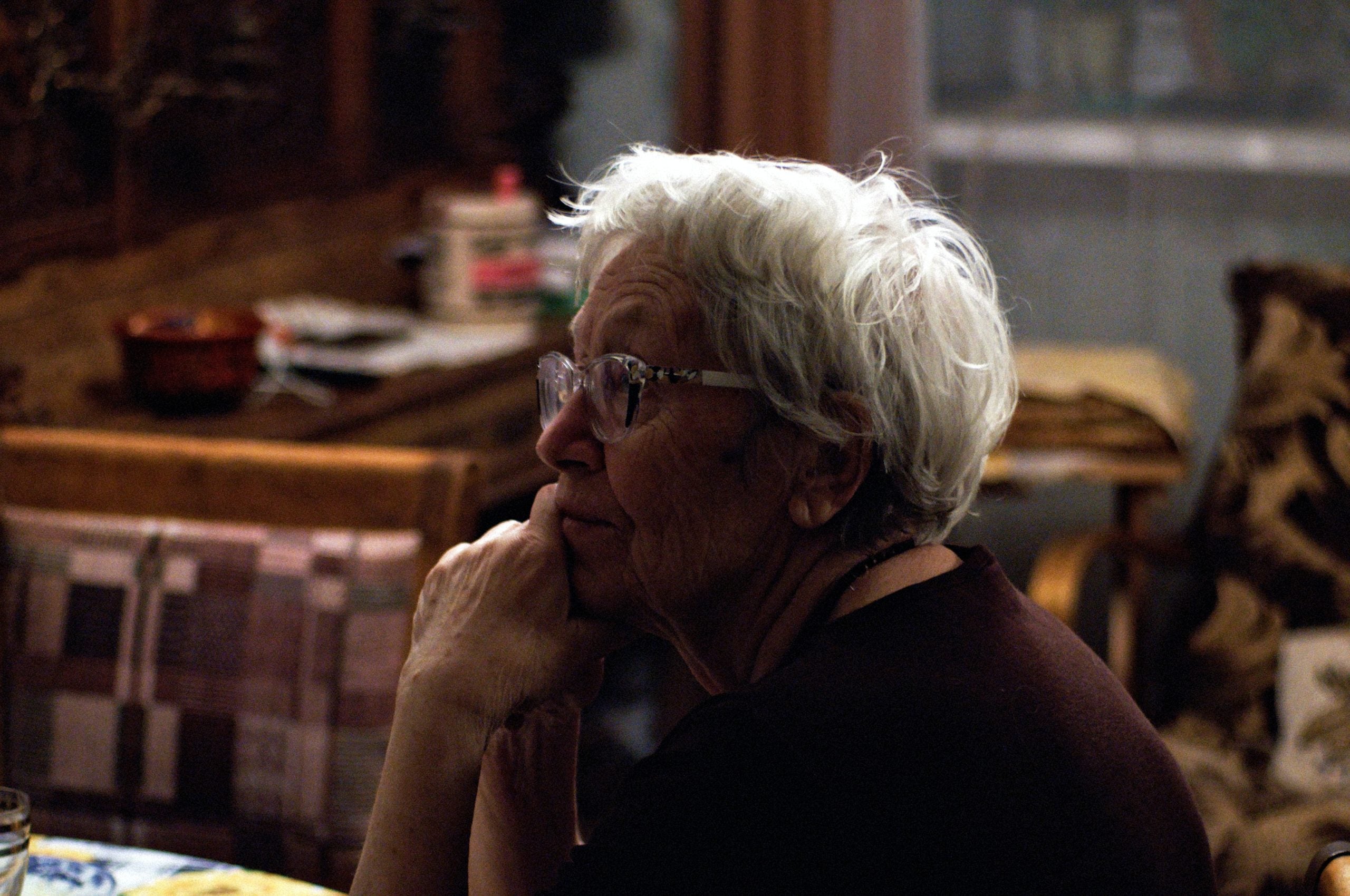Watching an elderly parent struggle with depression can be a difficult experience. After years of providing us with care and opportunities, we want our parents to enjoy their final years. However, WHO estimates that approximately 5% of adults are affected by depression around the world.
In Canada, up to 15% of adults 65 years and older and living in the community struggle with depression. People with one or more chronic health conditions are more likely to endure depression, as well as those experiencing isolation and loneliness.
Dealing with depression becomes a lot more manageable with a reliable support system and care. As a caring child and caregiver, you can play a vital role in helping to manage elderly depression symptoms.
Let’s explore why seniors become depressed, how to identify the warning signs, and the various treatment options available.
Why Seniors Become Depressed
Depression in seniors is not uncommon. The shift in life stage can introduce new struggles - both mental and physical.
Research shows that there is a link between dementia and depression. As one grows older, the brain receives fewer neurotransmitter chemicals, such as serotonin, that serve as a mood stabilizer.
Seniors are also exposed to more traumatic life events, such as friends and family passing away, feeling of isolation, and a sense of lost purpose after retirement.
Even if an elderly parent manages to keep a busy life and fills their days with activity, chronic pain and medical conditions can be taxing. The stress of enduring ailments can increase the risk of depression.
Warning Signs of Depression in Ageing Parents
While the elderly and depression are closely associated, it doesn’t mean that life is set to be doom and gloom. There are symptoms of looming depression that can help to manage the impact of mental health struggles.
It’s normal to experience ups and downs in life and elderly parents are not immune to the emotional ebb and flow of daily living. However, there are a few indicators that could warn of depression, such as the following.
- Insomnia - failure to get enough sleep
- Irritable moods - note the difference between the odd grouchy mood and constant irritability
- Fatigue - persistent exhaustion and lack of motivation
- Social withdrawal - withdrawing from friends and family for extended periods of time
- Excessive anxiety - constant stress and agitation
- Loss of appetite - skipping meals or no desire to eat, or even over-eating and weight gain
- Increased pain - worsening pain of current conditions as well as new, unexplained pain
- Obsession with death - preoccupation with death is common among the elderly struggling with depression
How Can Caregivers Deal with Depressed Elderly Parents
Identifying symptoms is one part of dealing with depression in elderly parents. There are also other parts of dealing with a depressed parent.
Consider the following tips for dealing with depression.
Seek Professional Help
When playing the role of a caregiver for a depressed elderly parent, it’s important to remember that you’re not alone. There are several health professionals available to offer insight and recommendations, as well as prescribe and monitor treatments.
One option is to organize a visit with the family doctor with whom your elderly parent feels comfortable and ask them to advise on treatment options. The doctor can also conduct a geriatric assessment to check for any neurological issues, such as Alzheimer’s.
It’s also worth setting up an appointment with a therapist who can train your parents in cognitive behavioural therapy (CBT). CBT strives to rewire the brain in an effort to reduce habits of anxiety and worry. A therapist will also be able to help with psychological barriers that trigger depression in older adults.
Encourage Socialising
Isolation and loneliness are key contributors to depression. While it may not be possible to spend all hours with your loved one, there are other ways to induce a sense of community. For example, Home and Community Care Support Services (previously known as Local Health Integration Network) organize senior-friendly social events and fitness activities to reduce depression.
If your parents are still able-bodied, then you can also encourage them to join a community group or volunteer their time at a local non-profit organization. From playing Bingo once a week, to meeting with fellow retirees to knit dog blankets, there are countless activities to reduce loneliness and stimulate connection.
Perhaps your loved one is too shy to meet strangers? Once again, professional organizations can assist by arranging a weekly visitor or taking your loved one out for a weekly outing.
Involve a Third-Party
The reality is that senior citizens are closer to death and the topic can be uncomfortable to discuss. Introducing an elder care coach to sit with the family and discuss future options can help make the conversation more candid and less intimidating. Having confidence in the future can alleviate a lot of stress and anxiety that trigger depression in elderly adults.
Treatment Options for Depression
Each person is unique and responds to treatment in their own way. Luckily, there are several different treatments. There are different options for older adults and depression treatments, allowing them to pick what suits them best.
Consider the following guidelines for depression tips, as shared by the Canadian Coalition for Seniors Mental Health.
Physical Activity
Increasing levels of physical activity can ease the symptoms of depression by improving mood, reducing anxiety and improving other health problems.
Introducing physical activity into a regular routine can be challenging for those struggling with depression, yet even gentle exercises such as Tai Chi and yoga are great stress reducers.
Expressive Therapy
There are various types of fringe therapy methods that promote self-expression, encourage positive communication and stimulate cognitive functioning. For example, horticultural therapy involves plant-based activities to improve memory, enhance skills and introduce socialization.
Another example is art therapy, such as painting, pottery and sculpting, which has therapeutic effects. Art therapy has also demonstrated the potential to increase self-esteem, boost confidence and raise self-awareness.
Pet therapy has become increasingly popular as the health and mood-boosting benefits of pets are acknowledged. For example, playing with a pet can increase levels of serotonin and dopamine. In addition, pet owners over 65 years old make 30% fewer visits to the doctor than those without.
Talk Therapy
Providing a safe and confidential environment to work through thought processes is an effective way to manage depression. There are different types of talk therapy to best suit the person, such as counselling, CBT, and mindfulness-based cognitive therapy (MBCT).
Encouraging socializing is another way to introduce the community and reduce loneliness and isolation.
Medication
Antidepressants are a common treatment option for those struggling with depression, including older patients. These treatment plans are designed to rebalance brain chemicals and help to stabilize their mood.
In many instances, a combination of these treatment options can be highly effective.
How Can Caregivers Help Themselves?
Dealing with a depressed elderly parent is no easy task, and it’s important to carve out time to look after yourself in the process.
- Prioritize your physical and mental wellbeing, so that you can lovingly provide for your loved one without resentment
- Pay attention to potential triggers in your own life
- Seek the help of a doctor if you experience new physical or emotional symptoms
- Be compassionate with yourself and forgive yourself for any mood swings you may experience
- Introduce stress-relieving activities into your life, such as meditation, exercise, and downtime
At Mednow, we prioritize helping those struggling with depression, as well as their caregivers, through our valuable resources and online pharmacy. As the only online pharmacy built by pharmacists, we’re committed to offering personal care and free delivery of vital medications, including antidepressants, in Ontario, British Columbia, and Nova Scotia.
This article offers general information only and is not intended as medical or other professional advice. A healthcare provider should be consulted regarding your specific situation. While the information presented is believed to be factual and current, its accuracy is not guaranteed and it should not be regarded as a complete analysis of the subjects discussed. All expressions of opinion reflect the judgement of the authors as of the date of publication and are subject to change. No endorsement of any third parties or their advice, opinions, information, products or services is expressly given or implied by Mednow or its affiliates.
Get Started
